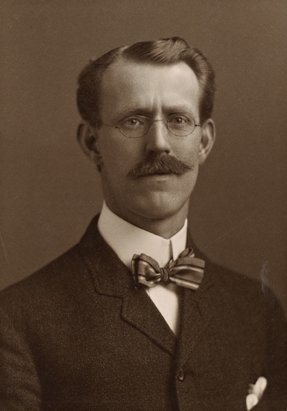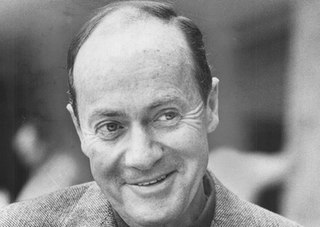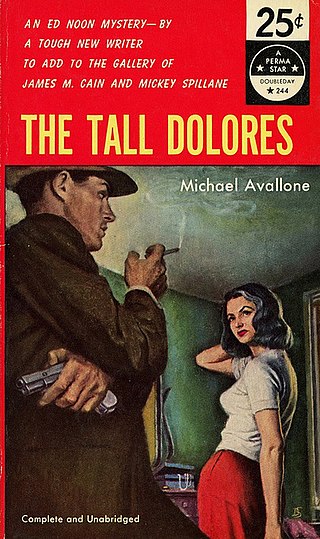Nicholas Cain is a private investigator and author of action novels.
Nicholas Cain is a private investigator and author of action novels.
Cain was born and raised in the Rocky Mountains of Colorado. In 1972, despite a relatively high draft number of 363, he volunteered for the Vietnam War, where he served as a US Army military policeman until 1973. He also served as an MP in Aurora, Colorado at the Fitzsimons Army Medical Center, then in Thailand with the 281st MPs at Amphoe Sattahip/Vayama, and in South Korea with the 110th MPs at Daejeon. In 1975, he left with an honorable military discharge and the rank of sergeant.
He returned to Colorado where he became a state trooper in north metro Denver and subsequently a city cop in suburban Thornton, Colorado. During his ten years as a police officer, he worked a variety of assignments, yet none stayed with him as much as his tour of duty in Vietnam.
Cain's experiences in Vietnam inspired him to write a non-fiction manuscript entitled Saigon Alley. After nearly every publisher in New York City rejected the proposed book, Zebra Books' Michael Seidman (coincidentally also an ex-MP) offered Cain a four-book contract, but only if he would fictionalize his manuscript and increase the sex and violence. This ultimately became the cult classic Saigon Commandos series, [1] which, beginning in 1983, ran to 12 books. Book 9 of this series was made into a film, called Saigon Commandos by Roger Corman's Concorde Studios.
Cain went on to write the War Dogs series for Zebra, using the pseudonym Nik Uhernik. He then wrote the first eight books in Ballantine Books' Chopper-1 series, under the pseudonym Jack Hawkins. He also penned three books in the Able Team series, which was a spin-off of the immensely popular Mack Bolan Exceutioner novels.
He wrote the final installment in the Vietnam Ground Zero series, (published as Zebra Cube in the Heroes trilogy), using the pseudonym Robert Baxter. then created and wrote the six-book series Little Saigon (only four books of which were published by Lynx Books of New York before Lynx folded).
After writing over 30 books, Cain pulled the plug on his word processor in 1990 and became a private investigator in Los Angeles. He began teaching the Learning Annex's Course #523: How To Get Anything on Anybody in the mid-1990s, and wrote two investigative manuals to go along with it: Trick Questions (And Other Trade Secrets of an L.A. County P.I.) and So You Wanna Be A Private Eye.

Richard Bachman is a pen name of American horror fiction author Stephen King, adopted in 1977 for the novel Rage. King hid the link between himself and Bachman, until allowing for his identification in 1985. He collected the first four Bachman novels into The Bachman Books. Rage became controversial for being about a school shooting and was allowed to go out of print after the 1997 Heath High School shooting. Three more novels were published under the Bachman name.

A pen name or nom-de-plume is a pseudonym adopted by an author and printed on the title page or by-line of their works in place of their real name.

Robert Anthony Salvatore is an American author best known for The Legend of Drizzt, a series of fantasy novels set in the Forgotten Realms and starring the character Drizzt Do'Urden. He has also written The DemonWars Saga, a series of high fantasy novels; several other Forgotten Realms novels; and Vector Prime, the first novel in the Star Wars: The New Jedi Order series. He has sold more than 15 million copies of his books in the United States alone, and 22 of his titles have been New York Times best-sellers.
William H. Keith is an American author mainly contributing to military science fiction and military fiction and related game design, who writes also under several pen names, such as Ian Douglas, Robert Cain and H. Jay Riker. His newer original works are written under the name of Ian Douglas.

Edward L. Stratemeyer was an American publisher, writer of children's fiction and founder of the Stratemeyer Syndicate. He was one of the most prolific writers in the world, penning over 1,300 books and selling more than 500 million copies.

Ross Macdonald was the main pseudonym used by the American-Canadian writer of crime fiction Kenneth Millar. He is best known for his series of hardboiled novels set in Southern California and featuring private detective Lew Archer. Since the 1970s, Macdonald's works have received attention in academic circles for their psychological depth, sense of place, use of language, sophisticated imagery and integration of philosophy into genre fiction. Brought up in the province of Ontario, Canada, Macdonald eventually settled in the state of California, where he died in 1983.
Donald Eugene Pendleton was an American author of fiction and non-fiction books, best known for his creation of the fictional character Mack Bolan, which have sold hundreds of millions of copies worldwide since the character's 1969 debut. Since 1980 the Bolan adventure-espionage books were written by other authors under the Pendleton name, and initially under Pendleton's editorial guidance.
Michael Collins is the best-known pseudonym of Dennis Lynds, an American author who primarily wrote mystery fiction.

Michael Angelo Avallone was an American author of mystery, secret agent fiction, and novelizations of television and films. His lifetime output was over 223 works, published under his own name and seventeen pseudonyms.
John Maddox Roberts was an American author of science fiction, fantasy, and historical fiction including the SPQR series and Hannibal's Children.
William Wallace Johnstone was an American author most known for his western, horror, and survivalist novels.
Lancer Books was a publisher of paperback books founded by Irwin Stein and Walter Zacharius that operated from 1961 through 1973. While it published stories of a number of genres, it was noted most for its science fiction and fantasy, particularly its series of Robert E. Howard's Conan the Barbarian tales, the first publication of many in paperback format. It published the controversial novel Candy by Terry Southern and Mason Hoffenberg, and Ted Mark's ribald series The Man from O.R.G.Y. Lancer paperbacks had a distinctive appearance, many bearing mauve or green page edging.

Ward Swift Just was an American writer. He was a war correspondent and the author of 19 novels and numerous short stories.
Gloria Emerson was an American author, journalist and New York Times war correspondent. Emerson received the 1978 National Book Award in Contemporary Thought for Winners and Losers, her book about the Vietnam War. She wrote four books, in addition to articles for Esquire, Harper's, Vogue, Playboy, Saturday Review and Rolling Stone.

Wallace Irwin was an American writer. Over the course of his long career, Irwin wrote humorous sketches, light verse, screenplays, short stories, novels, nautical lays, aphorisms, journalism, political satire, lyrics for Broadway musicals, and the libretto for an opera. His novel The Julius Caesar Murder Case (1935) represents a subgenre within detective fiction, the mystery novel set in antiquity.
Duncan Falconer is the pseudonym of an author and former Special Boat Service commando. As a child, he was raised in an orphanage in North London before being adopted by a family from Battersea.

Kendell Foster Crossen was an American pulp fiction and science fiction writer. He was the creator and writer of stories about the Green Lama and the Milo March detective and spy novels.
Warren Billy Smith, was an American author best known for his books on cryptozoology, UFOs and the hollow earth theory. In addition he authored a large number of historical romance and western novels.

The Secret Life of Damian Spinelli is a 2011 novel written by Carolyn Hennesy. The novel is a tie-in to the television soap-opera General Hospital, as the writing and publication was featured in the series.

The attack on the Joint General Staff (JGS) Compound, the headquarters of the Republic of Vietnam Military Forces, occurred during the early hours of 31 January 1968. The JGS was located east of Tan Son Nhut Air Base. The attack by Vietcong (VC) forces was one of several major attacks on Saigon in the first days of the Tet offensive. The attack was repulsed with the VC suffering heavy losses; no material damage was done to the compound.